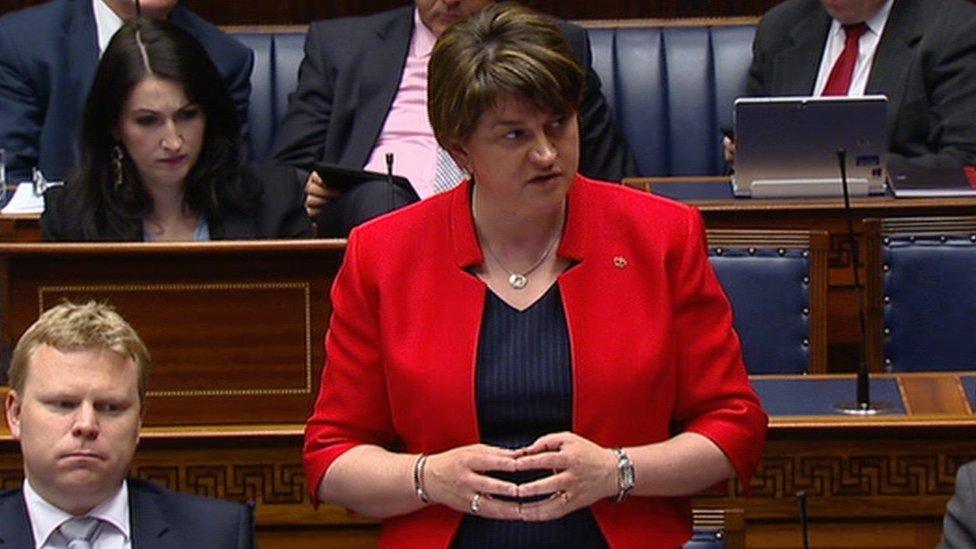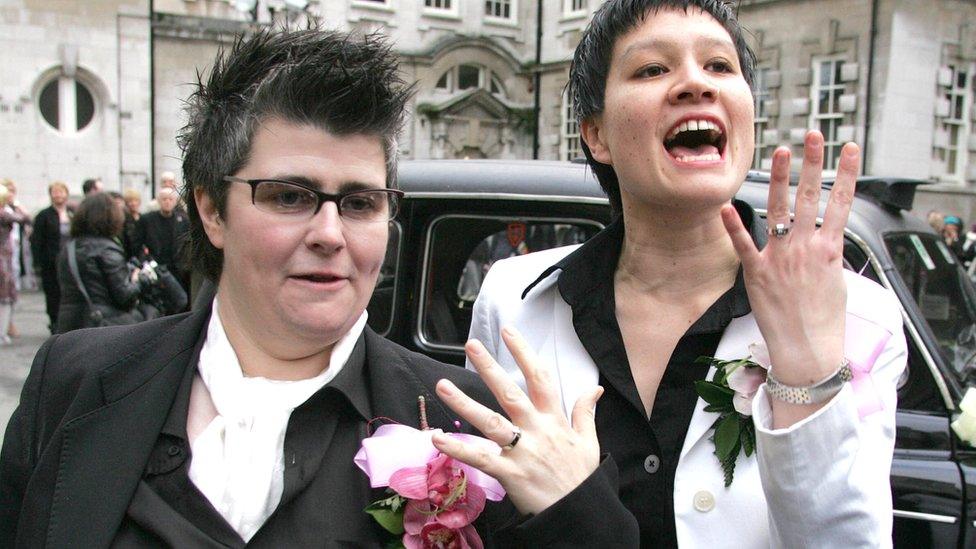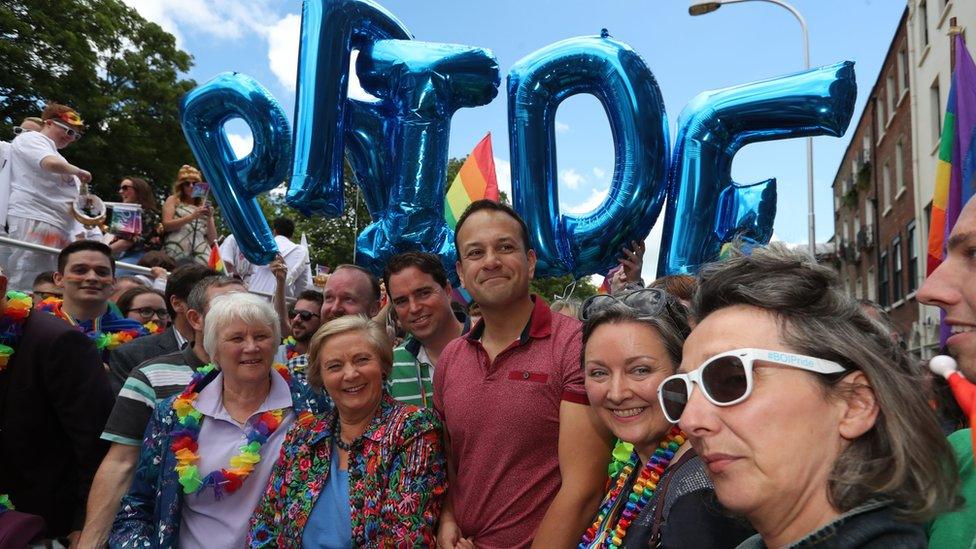Sinn Féin would like petition of concern changes
- Published

The petition of concern has been used more than 100 times in the assembly
Sinn Féin has said it would like to see changes to the assembly's petition of concern system to ensure that it is no longer misused.
The DUP has said if there is now support for fundamental reform of the assembly structures, it would welcome that.
However, it said other parties want to retain the controversial veto system to use when it suits their own needs.
The cross-community petitions have been used more than 100 times.
The issues it has been used on include welfare reform and abortion, as well as by party colleagues seeking to prevent sanctions being applied against ministers or MLAs.
The issue was raised on Tuesday at a meeting between the DUP and the same sex marriage campaign group, Love Equality.

After meeting with the DUP on Tuesday John O'Doherty said reform of the petition of concern is needed for the assembly to work
In November 2015, a narrow majority of MLAs backed the introduction of same sex marriage. However, the measure was blocked by the DUP, using its veto.
The Love Equality campaigners expressed disappointment that the DUP will not guarantee it will not try to use a petition of concern if a same sex marriage bill comes before the assembly in the future.
The DUP no longer has the number of MLAs to secure such a petition on its own, but would need the backing of two MLAs from other parties.
Alliance has said it believes abuse of the veto has significantly contributed to the current political deadlock and the only way a restored assembly will be sustainable will be if the mechanism is reformed.
Alliance has shared a proposed protocol with other parties which would limit the use of petitions of concern to matters of national identity; matters which relate to the legacy of the conflict in Northern Ireland; or matters which relate to the constitutional structure and institutions established under the Good Friday Agreement.
Alliance suggests a five-strong panel of legally qualified people could be appointed to adjudicate on whether future petitions meet this criteria.

In February of last year DUP leader Arlene Foster said her party would like to see the petition of concern "got rid of altogether"
In response, Sinn Féin has said it would also like to see the use of the petition of concern confined to "specific criteria in line with the Good Friday Agreement and consistent with equality legislation".
Sinn Féin said petitions should be limited to decisions which "would adversely impact on the equal treatment of the identity and ethos of any section of the community; are incompatible with international human rights standards; are directly connected to the conflict or its legacy; would have a disproportionate and adverse social or economic impact on a section of the community; relates to the constitutional structure and institutions established under the Good Friday Agreement".
In February last year, the DUP leader Arlene Foster told the BBC her party would like to see the petition of concern "got rid of altogether".
A DUP spokesperson said the party had "proposed scrapping the petition of concern, but this was rejected by other parties. We stand by that proposal to normalise the assembly structures".
The DUP said that while they complain about the mechanism, "most of the assembly parties want to retain it so they can use it when it suits their needs".
"Indeed, in the 2011-16 mandate whether on welfare reform, education or local government legislation some of those most critical of the PoC were very quick and content to use.
"If there is now support for a fundamental reform of the assembly structures, then we would welcome that. However, so long as the current structures exist, we will continue to use them. One-sided, selective criticisms of the petition of concern system from others will ring hollow when their track record is scrutinised."
- Published17 August 2017

- Published10 February 2020

- Published25 June 2017
